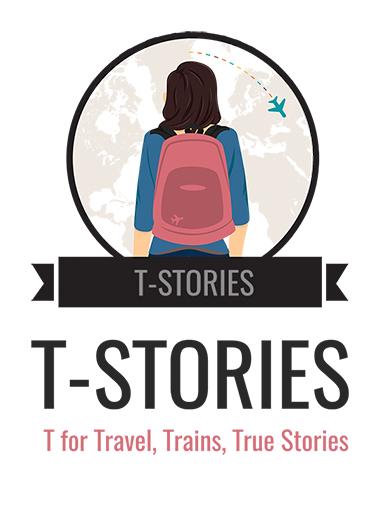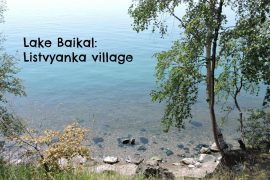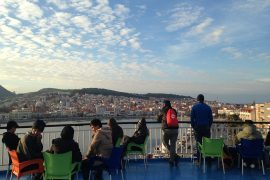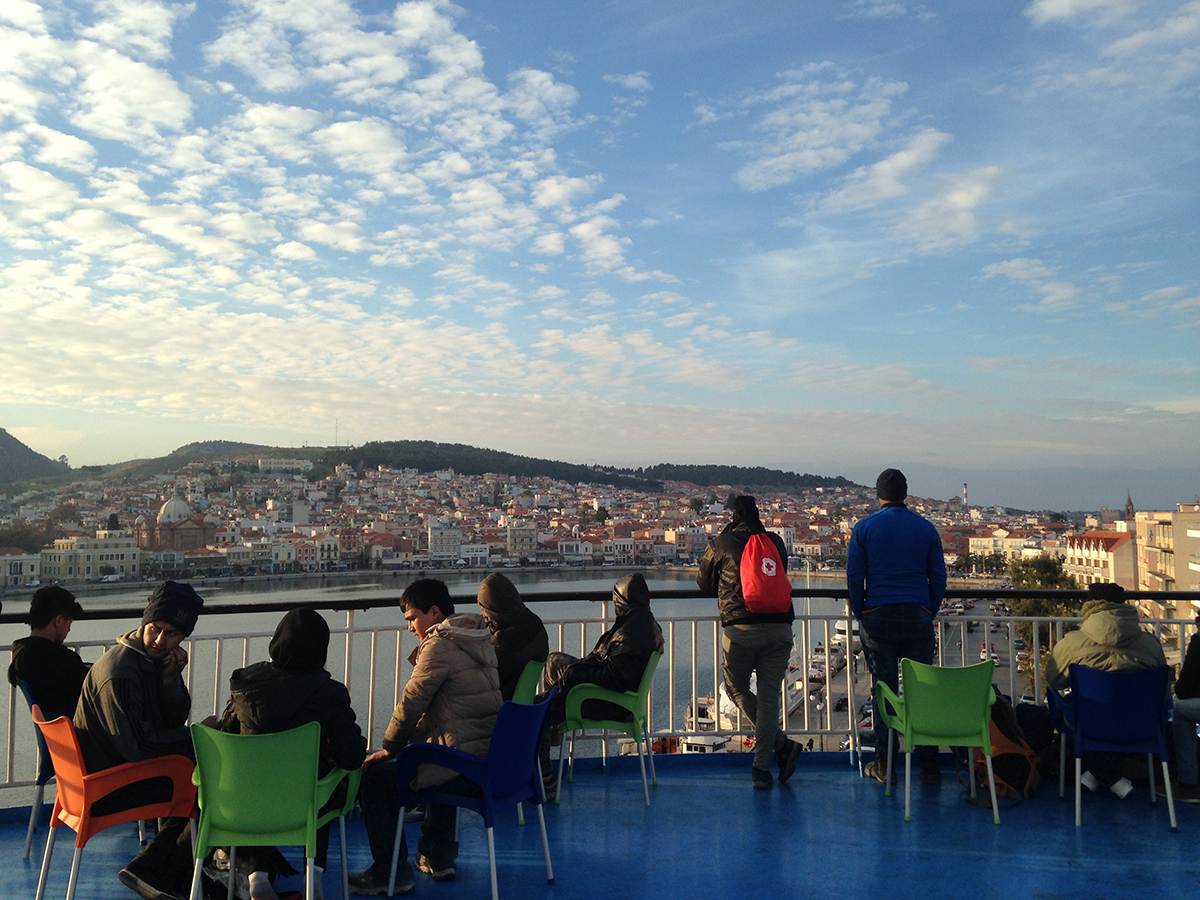
Lesvos Island – My experience (Part I)
I’m there. Still there. While physically I am back in Athens, I’ve left my heart in Lesvos. After a week on the island, each time I lay down to sleep I recall two images – two powerful images I’ve got stuck in my brain for the past few days: The huge piles of life jackets and those pairs of huge black eyes looking around with anxiety and a sparkle of hope; “Am I in Europe?” “Is this Greece?”
I arrived in Mytilene on Thursday morning along with F. and A. They both read my blog but it was the first time I met them in person. For the next few days we would share a room in order to share the accomodation expenses and of course, offer volunteer work in every possible way. There was a bus scheduled to leave at 11 am heading to Molyvos. After an hour and a half, we were at the village. Since none of us had visited Lesvos again we were in awe. I don’t know whether it was the clear blue sky, the picturesque houses, the castle up on the hill, the blue of the sea or the breathtaking sunset but we all agreed: struggling to deal with the tragedies of human life, nature’s beauty on the island remains intact.
On my first day (Thursday) in Molyvos, I didn’t get to do much. I reached out to the Starfish Foundation – the NGO supporting the refugees arriving at Eftalou beach and Molyvos in general – to further instruct me on how I could help. However, the mandatory volunteer introduction meetings take place every Monday, Wednesday, Friday and Saturday so I had to wait one more day. I took the opportunity and strolled around the little alleys of Molyvos, trying to get to know the local life (I’ll have a separate post about Molyvos coming up soon).
On the second day (Friday) A. and I took the paved alley leading to a local restaurant named “The Captain’s Table” where the introduction meeting would take place. 10 people from all around the world sat around the table: Spanish, Americans, French, Belgians, English and just us 2 Greeks. Tracey, one of the Foundation managers, informed us on how we could contribute after receiving a full briefing on the refugees’ journey to Lesvos and the procedures followed upon their safe arrival.
She gave us all the necessary volunteer info – shifts and volunteer duties, the difficulties faced on daily basis and the non-busy days when it is the perfect time to organise storage and the OXY camp; the transit camp built in the car park of a nightclub called Oxy. At the camp, volunteers are providing the refugees with food, dry clothes and a safe place to sleep while they assist them to register and acquire the necessary papers to continue their journey to Athens and onward to Europe.
Tracey pointed out the fact that the whole past week was strangely quiet. No boats arrived – noone could explain why. That gave them the opportunity to get better prepared by organizing everything – including how us, newbies could assist their work. After commiting to one of the three daily shifts (23:00-07:30, 07:00-15:30, 15:00-23:30) we spoke to Tracey to inform her on our short-term stay on the island. She replied that, while all the help offered is greatly appreciated, Starfish asks its volunteers to be able to commit for a minimum of one month in order to be able to train, understand the procedures and ultimately, support the team and most importantly the refugees in the best possible way.
On my third day on the island (Saturday) I joined the 2nd beach cleanup in the morning while at night my first shift at Starfish would take place.
40 people joined the cleanup (15 of them being Athens International Airport personnel) and with the assist offered by locals and other Greek volunteers, we split up in teams and headed to the beaches that needed to be cleaned up.
My team was assigned to clean one of the most “difficult” beaches, that of Eftalou. Our goal was to clean the beach up to the point called “Aghioi Anargyroi” – one of the busiest spots where thousands of refugees arrived each day for the past few months.

When we arrived at the beach, what caught my attention were the half-sunk wooden boats. Images of refugees arriving ashore in similar wooden boats flashed everywhere on the news and news site flashed through my eyes when I first saw them. How was it possible for 100 or more people to get aboard such a small boat and cross the Aegean from Turkey to Greece, to Lesvos? Inconceivable.
There was no time to feel numb, there was no time for second thoughts. I grabbed a sack and headed to the beach to start cleaning. The best thing I had to do was help.

That was until, a few minutes later, I encountered under a thin layer of seaweed more than 30 plastic boats. Thinking of the refugees who reached Eftalou beach from Iraq, Syria, Afghanistan or elsewehere aboard these very boats traveling for nearly 2 hours, I felt numb again. Everyone around me seemed so focused cleaning up the beach that I decided I had to put my emotions aside and continue.


By the time I reached one edge of the beach, I realised the situation was worse than I expected; hundreds of wooden and plastic boats piled in one corner, they had to be lifted to remove them from the site. Two divers from Norway or Sweden also arrived with special equipment to get the wooden boats disassembled and piece by piece removed, in order to clean the sea in a week-long procedure.

After an hour and a half at Eftalou beach, we moved onwards. Life jackets and boats everywhere – the small bays beneath Eftalou seemed to have “welcomed” many of the refugees arriving on the island. We picked up as many life jackets as we could and assembled them for someone who would recycle them, making backpacks.

After a couple of hours, we returned at the village exhausted but pleased with the work we had done so far.
Α. and I, returned back to our room to get some rest since at 11 we had our first shift; A. at Molyvos port and me at the transit camp at OXY.
Right before we headed to our scheduled shifts, they notified us via the team chat that since no boats arrived, we could return to our rooms, keeping our phones close in case of emergency.
So we spent Saturday night in our rooms, preparing for the next day’s shift at 15:00.
At this point, I should note that while at the northern part of the island things seemed quiet, in the south, near the airport, boats started arriving. It was rather stressing for the volunteers and everyone in charge, since it was odd; all this time the boats arrived near Molyvos, not that far south and the teams of volunteers were all located in the northern part of Lesvos.
To be continued..
——
I would like to adress thanks to Hellenic Seaways for the support and tickets it provided me with, as well as, A. and F. who, despite the fact that we didn’t know each other, they inspired me in so many ways. Young people with incredible personalities and strong will, a living proof of our generations’ determination to achieve everything they set their minds to.
Translation from Greek to English: Elena Ageorgiti
Comments
post a comment
You must be logged in to post a comment.
















